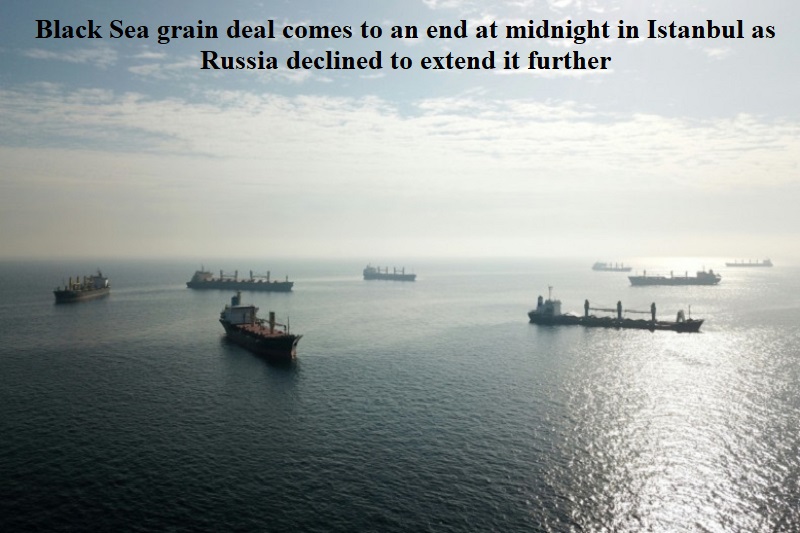
Russia’s decision not to extend the agreement allowing Ukraine to export grain through the Black Sea has raised concerns about food security and rising prices, according to UN Secretary-General António Guterres. The deal, facilitated by the UN and Turkey, aimed to address the food crisis caused by Russia’s blockade of Ukrainian ports. However, with the agreement now terminated, grain prices have started to rise, impacting consumers and exacerbating hunger concerns worldwide.
Secretary-General Guterres expressed regret over Russia’s decision, highlighting its severe consequences for millions of hungry people and strained consumers. Grain prices had already begun to increase as news of the termination broke, reversing the 35% price drop achieved under the deal. This has further raised concerns about food affordability and availability.
Although Turkish President Recep Tayyip Erdo?an expressed optimism about preserving the deal through talks at the UN, Secretary-General Guterres’ statement indicated that the agreement, renewable every three months, was effectively over.
A senior Russian official confirmed that the decision to terminate the grain deal was final, impacting planned discussions between Russian Foreign Minister Sergei Lavrov and Turkey’s new Foreign Minister Hakan Fidan. Secretary-General Guterres expressed disappointment with Russia’s explanations, rejecting claims of lost food markets as Russian grain trade and fertiliser markets had remained stable and even grown.
If the suspension of the deal continues for an extended period, reviving it may become impossible, leading to further price hikes. Ukraine has proposed exporting grain via ship despite the Russian naval blockade, which raises concerns about escalation and the response of western diplomats.
Leaders from various countries, including the White House and UK Foreign Secretary James Cleverly, criticized Russia’s decision, emphasizing the negative impact on global food prices and food security.
Russia and the West are expected to blame each other for the collapse of the deal, complicating matters for Russian President Vladimir Putin, who faces an upcoming economic summit with African countries and potential public criticism.
The collapse of the grain deal will have significant implications for Africa, affecting supply stability and relative price stability. In countries like Nigeria, Kenya, and Ghana, where protests and double-digit inflation due to rising food and fuel prices are already occurring, the inability to revive the deal and subsequent price increases may exacerbate economic crises and lead to further unrest.

Post Your Comments